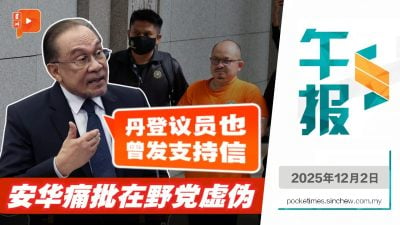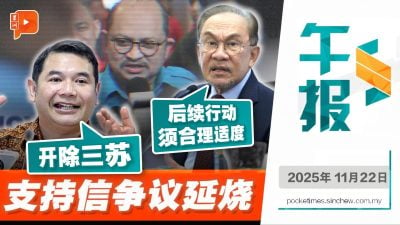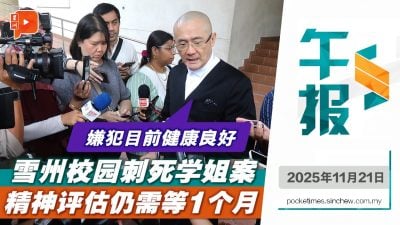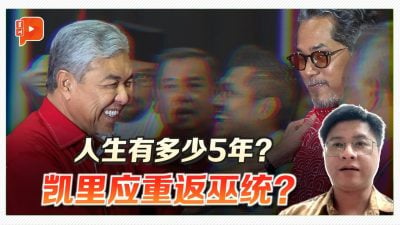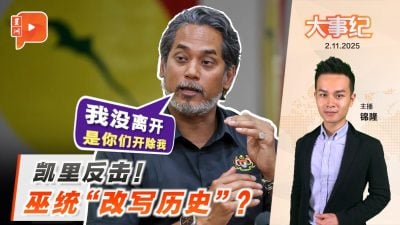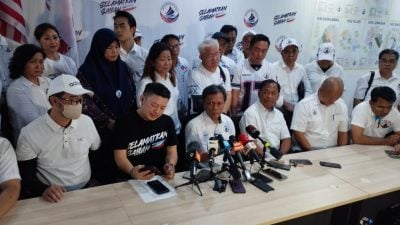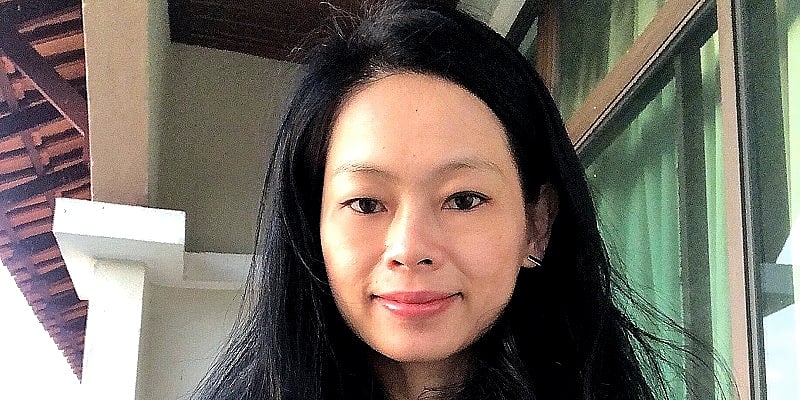
Rumors are swirling again: Khairy Jamaluddin may be making a return to Umno, the very party that expelled him in 2023.
Rafizi Ramli has stepped down from his ministerial role after losing in PKR’s internal polls recently.
Nik Nazmi Nik Ahmad, once a rising star of environmental reform, has also resigned from his cabinet post.
Just a few years ago, these were the faces many Malaysians pinned their hopes on: young, articulate, data-savvy, and principled. Today, they appear sidelined, disillusioned, or recalibrating their paths.
At the same time, Nurul Izzah Anwar, after years of political turbulence and critique, has returned to a leadership role, winning the PKR deputy presidency.
Her re-emergence adds complexity to the picture: not all young leaders are retreating, but many continue to navigate a system that rewards conformity over innovation.
What does this tell us?
On one level, it’s about internal party dynamics, ministerial frustrations, and the wear and tear of governing in a coalition system. But on a deeper level, these developments point to a fundamental political question Malaysia can no longer avoid: Are we truly ready to embrace a new generation of leaders, or are we still beholden to the old political script, endlessly recycling names and clinging to personalities instead of principles?
These recent dramas are not isolated incidents. They reflect a broader political system that often sidelines those who challenge its entrenched norms.
Khairy Jamaluddin, once viewed as a moderate within Umno and known for his steady handling of the Covid-19 crisis, was removed after clashing with the party’s leadership.
His possible return to Umno now raises important questions: is it a tactical recalibration, or a sign that even reform-minded figures must eventually conform?
Rafizi Ramli’s trajectory tells a similar story.
Some welcomed his return to politics as a chance to inject policy-focused thinking into government. Yet his resignation in 2025, following a party leadership loss, points to deeper frustrations with internal party dynamics and the limitations of governing within a fragmented coalition.
In many democracies, such resignations would trigger serious reflection within parties about leadership renewal and political direction.
In Malaysia, they pass with little more than passing commentary, underscoring how normalized political inertia has become.
Familiar faces, familiar failures
The issue isn’t merely the exit of new leaders. It’s the persistent recycling of old ones.
Mahathir, Najib, Anwar: Malaysia’s political discourse remains anchored to a narrow circle of familiar names.
Some may have played historic roles, but history should not dictate the future.
There is something almost ritualistic about our national tendency to revert to the same figures in times of uncertainty, as if political navigation is only possible through well-worn paths.
Yet these very individuals were architects, or at the very least, beneficiaries of the political system we now recognize as flawed.
The rumored return of Khairy Jamaluddin to Umno, if it materializes, might be a calculated move.
However, it also reflects a deeper malaise: Malaysia’s political landscape often presents reform-minded actors with two choices: be absorbed into the system or be pushed out.
While age and time will inevitably remove some of these legacy figures from the scene, the real question is whether the structures they built and the mindsets they shaped will outlast them.
Youth leaders, real barriers
Malaysia is not short on younger political figures, but their presence often masks a deeper structural resistance to genuine renewal.
While new faces are occasionally spotlighted, their roles tend to be limited, precarious, or heavily shaped by the interests of party elites.
Too often, their inclusion appears tokenistic, used to signal reform without actually empowering them.
Internal party structures remain hierarchical, electoral incentives still reward identity politics, and coalition dynamics leave little room for independent or alternative voices.
Attempts to establish youth-led, multiethnic, issue-based platforms have repeatedly faced systemic pushback.
These initiatives struggle not due to a lack of ideas or energy, but because the political system privileges incumbency, patronage networks, and electoral calculations over principled leadership.
Even alliances that claim to be reform-oriented have been slow to make space for new actors, reinforcing the message: the door may be open, but only slightly and only on terms set by those already inside.
The voter paradox
Voters often express frustration with the political status quo, but at the ballot box, familiar patterns tend to persist.
In many rural constituencies, long-standing patronage networks and identity-based appeals continue to exert significant influence.
In urban areas, political fatigue can lead to disengagement rather than decisive shifts.
When newer political actors fall short of high expectations, they are frequently judged more harshly than long-standing incumbents.
The 2022 general election illustrated this complexity.
While some newer parties and reform-minded candidates attracted significant urban support, they struggled to convert that into seats due to structural disadvantages, such as Malaysia’s first-past-the-post electoral system and entrenched constituency boundaries.
At the same time, parties that leaned heavily on ethno-religious messaging gained ground, particularly in Malay-majority areas, reflecting how deep-rooted identity politics remains a potent electoral force.
In essence, many Malaysians desire change, but not necessarily the uncertainty that comes with unfamiliar leadership.
New political entrants, regardless of how principled or policy-driven, are still often viewed as untested risks in a society where stability, tradition, and communal identity continue to shape political decision-making.
Building a new political culture
Transformative change in Malaysia requires more than new leaders; it demands a fundamental rethinking of political culture.
Political parties must confront their own internal contradictions: democratize leadership selection processes, dismantle hierarchical patronage structures, and cultivate a culture where dissent is not just tolerated but valued.
Leadership should be based on merit, policy acumen, and public service, not lineage, loyalty, or factional allegiances.
Emerging political actors, particularly from younger generations, must also resist the impulse to wait for openings within existing structures.
They must assert agency by building independent platforms, engaging communities beyond electoral cycles, and redefining the terms of political participation.
The media and intellectual class, too, bear responsibility.
Political discourse must move beyond the obsession with personalities, party drama, and palace dynamics.
It must focus instead on competing visions for the country’s future through debating ideas, structural reforms, and values that can anchor a more equitable and democratic Malaysia.
Without a shift in how politics is discussed, we risk reinforcing the very culture we claim to reject.
So, are we ready?
This isn’t just about Khairy, Rafizi, or Nurul Izzah. It’s about whether we, as a society, are ready to grow up politically.
Can we reward integrity even when it comes with inexperience? Can we tolerate mistakes from new leaders the way we’ve excused decades of failure from old ones? Can we vote for someone who doesn’t have a familiar name, but has a clear vision?
Malaysia’s future will not be determined by those who’ve already shaped its past. It will be written by those willing to take a risk and try something new. But they cannot do it alone.
It’s time for a reckoning not just with our politicians, but with ourselves.
We must stop asking when “they” will change and start asking when we will.
(Khoo Ying Hooi, PhD, is an Associate Professor of International Relations and Human Rights at Universiti Malaya. Her work spans human rights research, diplomacy, and policy engagement across ASEAN and Timor-Leste, along with active contributions in editorial and advisory capacities.)
ADVERTISEMENT
ADVERTISEMENT






